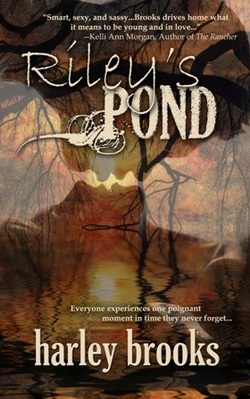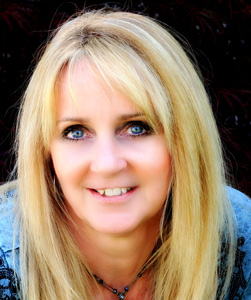
Authors write from a range of emotions when creating a story. We create a stage with props, scenery, and an emotional playlist for the reader to feel and visualize through words, where a playwright or screenwriter has tangible effects to force the emotion into a viewer. Writers don't have the orchestra or special effects to relay the story. Every word counts in the positive or negative in creating the mental imagery a reader will need to keep them in a book.
Each scene is a mini-story in itself and in order to create the "mood" for the reader, the author delves into a past memory, good or bad depending on what's required, to find the emotion attached. Sometimes it's a warm, fuzzy feeling, a dizzying thrill of elation, or a sad, maybe melancholy memory. Sometimes, we have to dredge up a painful, heart wrenching moment from our past buried deeper than the others, in order to help the reader connect with what our hero/heroine is struggling with during the dark moment in a story.
In "Riley's Pond," the darkest moment (as a book can have more than one, but only one will be pivotal) centers on a date rape. While I didn't go into the graphic details of what was happening to my heroine, I created the feelings of fear, hopelessness, and a sense of deep loss, followed by shame and self-reproach, by taking the reader inside Taylor's thoughts. Exhausted and facing no escape, she couldn't stop the ultimate from happening, so she found a way to take herself out the moment; turn off and detach. She counted the daisies on the wallpaper border. I counted rivet holes in a tent.
As devastating as it was to unlock that horrific memory, with it came the therapeutic cleansing, not to mention what I needed to create the pivotal moment in my story. Everything in life changed in a millisecond, and what was once solid ground, instantly became quicksand. Every relationship changed, whether in truth or in perception, and numb became the only recognized feeling. Each day turned to a playback of micro crossroads; an alternate turn of events not taken due to something said, or worn....anything that pulled the trigger. Sleep only meant reliving the nightmare from an omniscient perspective that showed weakness and surrender. What happened, however, wasn't chosen. The consequence came from pre-calculation, not on my or Taylor's part, but nonetheless, like me, Taylor assumed the blame and began a self-destructive path. That's where our stories separated, the only remaining common thread being the defining moment where victim turns survivor and stands strong once more.
I guess that's why "Riley's Pond" released first. Despite the writing shows me a bit "green around the gills" as an author, the story is raw, passionate, and pure. When it published, I found a weird sense of closure, although I believed I'd already moved on. Maybe, like Taylor, I needed Riley's help to show me the possibilities still waiting to be discovered.

 RSS Feed
RSS Feed